74th UNEP/UNESCO/BMU International Short Course on Environmental Management for Developing Countries - Integrated Water Resource Management – Quantity, Quality, and Health (SC74)
Duration: 30 August - 26 September 2018
Motivation
Two-thirds of the global population already live in areas affected by water scarcity at least one month per year. About 500 Million people are living in regions, in which water consumption is more than twice the amount of locally available renewable water resources.
As the population increases and lifestyles change, the demand for water will rise significantly during the next decades. A substantial share of that demand comes from agriculture, which today accounts for 70 percent of the world's water abstraction, but also from industry and energy production. The projected increase in demand is also due to accelerated urbanisation and, consequently, the expansion of urban water supply and sanitation systems.
Climate change is likely to exacerbate the gap between water supply and demand. The frequency and intensity of floods and droughts are likely to change, with partially drastic consequences on the socioeconomic conditions and the environment. Declining water quality due to the discharge of contaminated wastewater intensifies water scarcity, endangers human health and burdens ecosystems – and consequentially hampering sustainable economic development. Affordable supply and treatment options are urgently needed.
Currently, more than 80% of wastewater is discharged without treatment. Improved management of wastewater towards a circular economy offers excellent opportunities which need to be exploited to deal with the rising pressure on water resources.
The 2030 Agenda for Sustainable Development has comprehensive water objectives and goes beyond water and sanitation. The Sustainable Development Goal 6 aims to ensure the "availability and sustainable management of water and sanitation for all." Subgoal 6.3 aims at improving water quality by 2030 "by reducing pollution, eliminating dumping and minimising the release of hazardous chemicals and materials, halving the proportion of untreated wastewater and substantially increasing recycling and safe reuse globally.”
Achieving Goal 6 is central to the entire agenda. Whether the global community can attain it will be decided in low- and middle-income countries, where the share of water treatment and wastewater treatment is extremely low and the need for low-cost implementation solutions and options for safe water use is particularly high.
A focus on “nature-based solutions” is in line with the UN World Water Day 2018 theme “Nature for Water”. Nature-based solutions have the potential to solve many of our water challenges. There is a huge potential of ‘green’ infrastructure that should be harmonised with ‘grey’ infrastructure wherever possible. This approach is also emphasised by the UN World Water Development Report 2018 “Nature-based solutions for water” and on other international events such as Stockholm World Water Week.
Course contents
This course, therefore, constitutes a contribution to capacity building for the protection and sustainable use of the available water resources as outlined in target 6 of the agenda 2030. The course addresses both water quantity and quality issues within integrated water management, covering the scientific background, effective governance and appropriate technologies.
The curriculum comprises lectures, seminars, site visits and excursions, with many opportunities for intersectoral exchange and for expanding professional networks. The training will cover
- a basic understanding of the water cycle and the climate system,
- integrated water resources management concepts
- the strongly interlinked aspects of water quality and quantity, with emphasis on health issues, including for example
- water reuse and recovery,
- pollutants of emerging concern,
- nature-inspired approaches for improving water quality
- ecohydrology approaches to water management
- water governance and monitoring frameworks, with innovative approaches to water quality monitoring
- groundwater management, including managed aquifer recharge
- urban water (water infrastructure, water purification and distribution, wastewater treatment), water for agriculture
Participants will be asked to prepare post-training action plans to facilitate the transfer of newly acquired knowledge and skills. Throughout the training, intercultural understanding will be promoted.
After successful completion, participants will receive a Certificate of Proficiency in Nature-Based Water Resource Management - Quantity, Quality and Health.
Objectives
Participants are expected to adapt concepts for an integrated water resource management. After the completion of this course, they should be able to actively contribute to the sustainable use of water resources in their respective countries with special consideration of health issues.
Target Groups
This course is designed to meet the professional demand of experts preparing and implementing policy decisions as well as decision makers working in environmental protection with a specific focus on safeguarding water resources. A corresponding professional background (e.g. geology, geography, hydrology, meteorology, hydro-engineering, planning, water management) is essential. The nomination by the delegating institution is a mandatory prerequisite.
Represented countries of origin in the course:
| Armenia | Bhutan | Brazil | Cameroon | Ecuador | Egypt |
| Ethiopia | India | Iraq | Jordan | Kosovo | Madagascar |
| Namibia | Nigeria | Nepal | Pakistan | Peru | Philippines |
| South Africa | Sudan | Zambia |
Ms Intesar Albu-Attiya

Ms Intesar Albu-Attiya
Country of origin: Iraq
Workfield: Water and environment
Position while attending the course: Senior Engineer at State Commission for Dams and Reservoirs
Academic background: Environmental Engineering (M.Sc.)
Responsibilities:
► Studying and evaluating the engineering designs and construction documents for small, large dams and reservoirs. Also evaluating the EIA and economic feasibility study of dams. Member of the committee responsible for water allocation and rehabilitation of water infrastructures.
Profile:
I am working as a senior Engineer in the general director office / State commission for Dams and Reservoirs / Ministry of Water Resources from March 2007 until now. My current work is the follow up of the MOSUL dam maintenance grouting & rehabilitation contract with TRVEI the Italian Com. I am preparing the documents required for inviting international companies to study and evaluate the dam safety. Furthermore I am within the committee responsible for water allocation and rehabilitation of water infrastructures.
In this context, the Fellowship Programme is the best opportunity for me to deepen my knowledge on modern nature conservation approaches, governance and conservation economics as well as to improve my skills for facilitating complex discussions.
I did my master in UPM University – Malaysia in 2017 in using Nano materials for water treatment especially water contaminated with spill oil and have a publications regarding this issue.
Ms Abeer Ali Ahmad Mahmoud
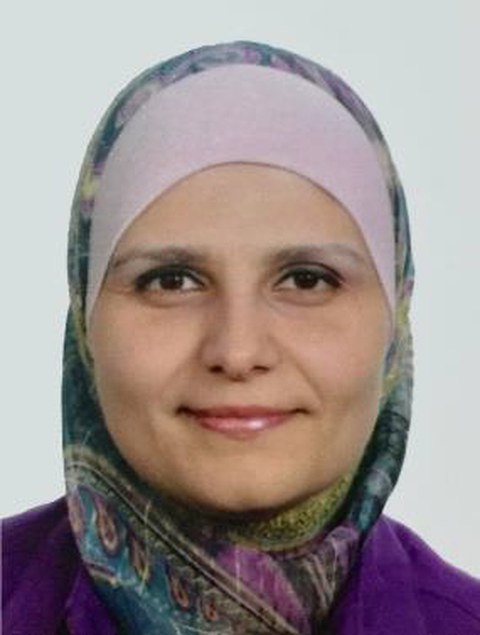
Ms Abeer Ali Ahmad Mahmoud
Country of origin: Jordan
Workfield: Fed-/nat. administration
Position while attending the course: Head of Planning Division at Ministry of Water and Irrigation Jordan Valley Authority, Amman
Academic background: Water Conflict Management (M.Sc.)
Responsibilities:
Formulation, implementation and updating of the following: strategy, policies and action plans, projects proposals for funding as well as the yearly water balance of Jordan Valley Authority.
Mr Addisu Gebremedhin Atsibha
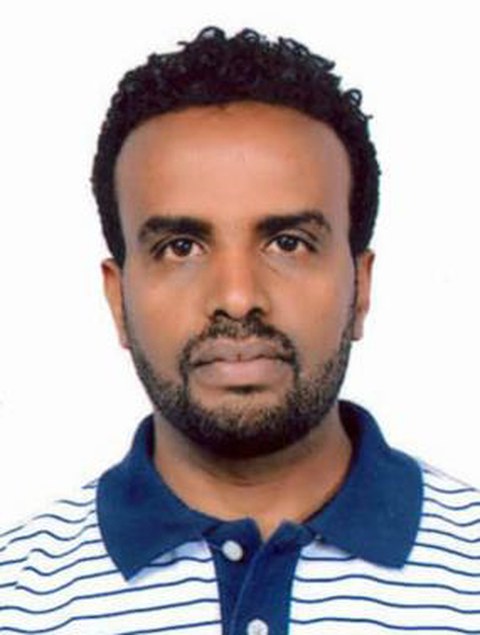
Mr Addisu Gebremedhin Atsibha
Country of origin: Ethiopia
Workfield: Fed./nat. administration
Position while attending the course: Senior Environmental Specialist at Ministry of Water, Irrigation and Electricity Office of the Water Resource Development Fund, Addis Ababa
Academic background: Environmental Science (M.Sc.)
Responsibilities:
Mandated to incorporate environmental, climate change and social issues into water supply and irrigation projects. Consideration of sustainability issues regarding water development sources of projects. Focal person for Climate Resilient Green Economy (CRGE)
Mr Khalid Badr Ahmed Badr
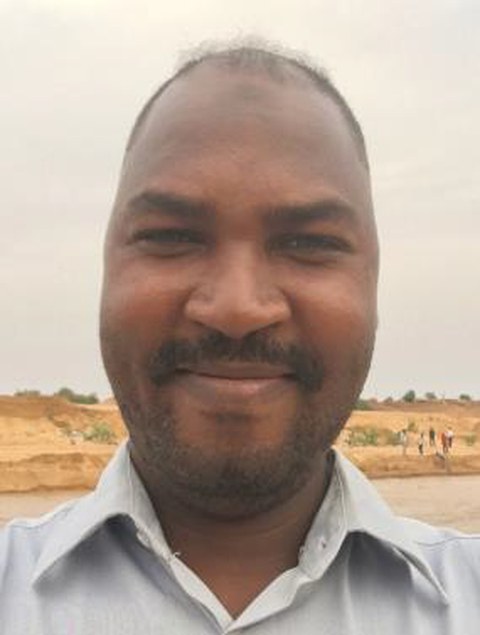
Mr Khalid Badr Ahmed Badr
Country of origin: Sudan
Workfield: Reg. administration
Position while attending the course: Senior Water Supply Engineer at Rural Water Administration, State Water Corporation Ministry of Urban Planning and Public Utilities, El Fasher, North Darfur
Academic background: Environmental Science and Engineering (M.Sc.)
Responsibilities:
Review policies on borehole drilling in remote rural areas in North Darfur State. Manage construction and rehabilitation of hand pumps and water points. In charge of planning project budgets and conduct design reviews. Direct RWA technical staff. Liaise between government, donors and INGOs.
Ms Krisha Marie Bautista

Ms Krisha Marie Bautista
Country of origin: Philippines
Workfield: Fed./Nat. company
Position while attending the course: Project Controller at Manila Water Philippine Ventures Quezon City
Academic background: Civil Engineering (B.Sc.)
Responsibilities:
Performs technical and management activities to control construction projects' cost, schedule and quality to complete project within budget and timeline, ensuring standards are met. Projects include water and used water facilities and network to supply potable water and treat used water.
Ms Dayanara Antonella Bermudez Zambrano
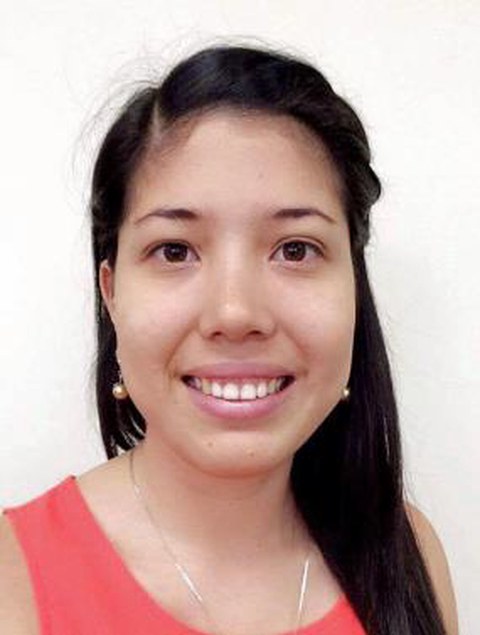
Ms Dayanara Antonella Bermudez Zambrano
Country of origin: Ecuador
Workfield: Fed./nat. administration
Position while attending the course: Technical Analyst in Desaster and Risk Management at Gobierno Autónomo Descentralizado Municipal del Cantón Durán Dirección General de Gestión de Riesgos, Municipality of Durán
Academic background: Geology Engineering (B.Sc.)
Responsibilities:
Participate in the assessment of vulnerability and risk reduction of the hazards that can affect the city of Duran. Find ways to guide the city to a sustainable development. Preparation of physical, social, economic and environmental vulnerability indicators.
Ms Avantika Bhaskar

Ms Avantika Bhaskar
Country of origin: India
Workfield: Regional NGO
Position while attending the course: Manager Research and Development at Care Earth Trust, Thillaiganga Nagar, Chennai
Academic background: Plant Molecular Biology (Ph.D.)
Responsibilities:
Project coordination and research including data management and documentation, socio-ecological assessments, networking with stakeholders, development of training components, information and communication notes, project proposal development and awareness generation.
Ms Camila do Prado Gonçalves Santos
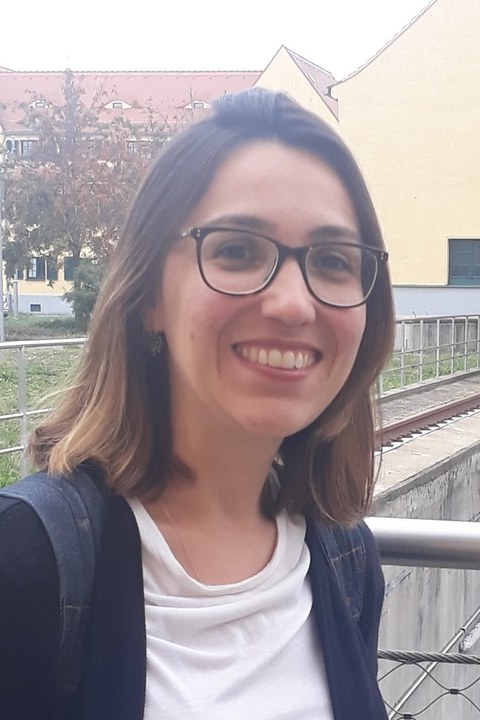
Ms Camila do Prado Gonçalves Santos
Country of origin: Brazil
Workfield: Civil Engineer
Position while attending the course: Sanitary System Analyst at CAESB - Environmental Sanitation Company of Federal District Águas Claras - Brasília/DF
Academic background: M.Sc. in Sanitary Engineering
Responsibilities:
Management of wastewater system projects. Duties are related to planning, implementation and updating activities in the field of civil engineering, such as studies, projects, opinions, research and development of methods, products, processes; environmental and water resources management.
Profile:
I am a Sanitary System Analyst, working in the Management of Projects of Wastewater Systems, linked to the Superintendence of Engineering Projects. My duties are related to planning, implementation and updating activities in the field of Projects of Wastewater Systems, including:
- Designing of wastewater systems, including plumbing, pumping and treatment in areas of Federal District - new systems, relocation and improvements;
- Technical drawing and reports of projects (including environmental and technical feasibility studies);
- Budgets (definition and specification of materials, construction techniques and timelines)
Regarding this course, the Fellowship Programme is the best opportunity for me to learn more about Nature-Based Water Resources Management. Also, to improve my skills in the use of water resources management tools to contribute to the best choice of solutions for the challenges that Brazil and the world will face in the coming decades. So, promoting better access to sanitation services and integrating engineering solutions with environmental preservation.
Mr Lloyd Govender
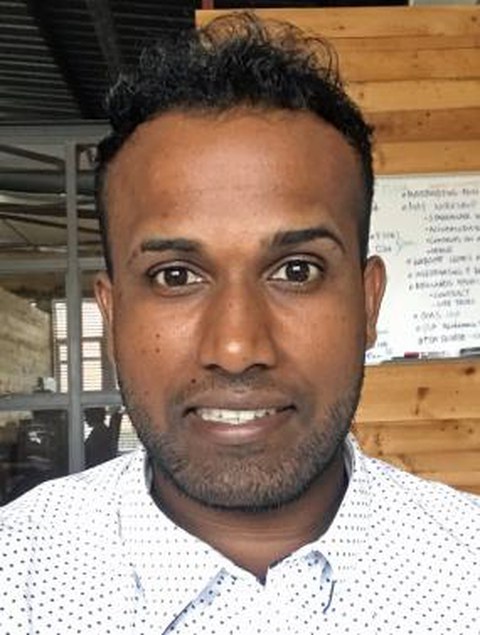
Mr Lloyd Govender
Country of origin: South Africa
Workfield: Local NGO
Position while attending the course: Civil Engineer and Project Manager at BORDA South Africa Durban
Academic background: Civil Engineering (B.Sc.)
Responsibilities:
Wastewater treatment system design, which includes designing to preserve and enhance the South African environment. Project manager tasked with ensuring successful project completion and implementation.
Mr Lee Wakalala Hantembe

Mr Lee Wakalala Hantembe
Country of origin: Zambia
Workfield: Local admin.
Position while attending the course: District Water Resources Development Officer at Ministry of Water Development, Sanitation and Environmental Protection Livingstone
Academic background: Integrated Water Resources Management (M.Sc.)
Responsibilities:
Manage and coordinate the development of water resources infrastructure projects/programmes in order to improve accessibility and sustainable utilisation of water. Key result areas include policy, infrastructure development, international waters and research.
Mr Roshan Kumar Joshi
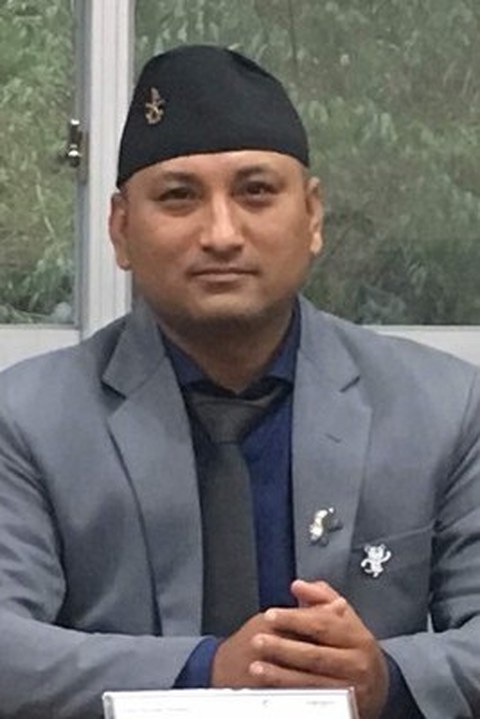
Mr Roshan Kumar Joshi
Country of origin: Nepal
Workfield: Environment and WASH
Position while attending the course: Environment and Social Management Expert at Ministry of Water Supply / Rural Water Supply and Sanitation Fund Development Board, Maharajgunj, Kathmandu
Academic background: Environmental Science (M.Sc.)
Responsibilities:
Oversee environment issues in construction of water supply schemes, Review of WASH policies. Preparation of environmental and social management plans and implementation of water safety plans. Assist in construction of costs effective water treatment plants etc.
Profile:
Currently I am working in Rural Water Supply and Sanitation Fund Development Board as an Environment and Social management Expert. We construct water supply schemes and improve the environment and sanitation conditions of the Rural and Urban dwellers. I have to oversee problems related to different environmental issues and sanitation issues including drainage problems for each selective scheme. Furthemore I am assisting in developing mitigation plans for those issues. I also help in the preparation of Environment and Social Management Plans as per the Environment Social Management Framework and review and develop monitoring indicators corresponding to environment and social aspects and support to integrate in overall Management Information System.
This fellowship programme is the best opportunity for me to deepen my knowledge on nature based water resource management areas. Which will further improve my skill for implementing the complex schemes related to water resource management in Nepal
It would also be relevant to mention here that earlier I have worked in District Development Committee Morang, where my responsibilities included carrying out the Pollution Control Procedures, Industrial Compliance inspections, Environmental Audits, IEE, EIA, Solid Waste Management and Environmental Management Plans. I was the member secretary of Environment Sub-committee of Morang, I have taken a lead in compliance monitoring of the most polluting industries in Morang District and as per EPA/EPR, and I have been active in providing Provisional Pollution Control Certificates to more than 50 industries. Furthermore I was also working as lecturer for Bachelor in Public Health Program where I deliver my lectures on different issues related to Environment, public health, biodiversity and climate change.
Mr Kumar Love Maheshwari
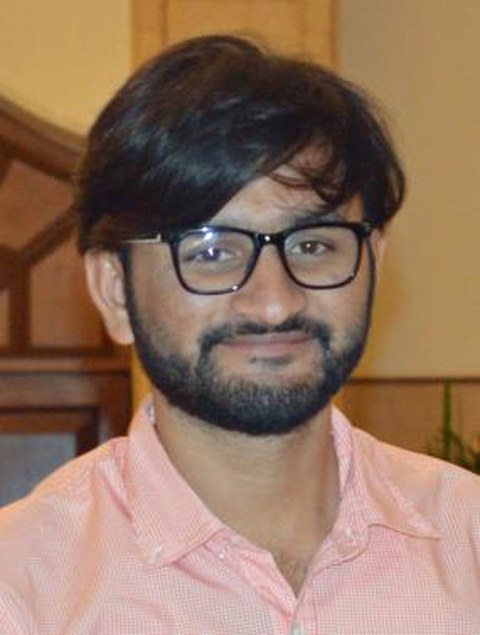
Mr Kumar Love Maheshwari
Country of origin: Pakistan
Workfield: Environmental Policy
Position while attending the course:Environmental Officer at WWF-Pakistan Karachi
Academic background: Environmental Engineering and Managment (M.Sc.)
Responsibilities:
Formulation of Smart Environmental Management Practices (SEMPs) for better water and energy stewardship and pollution mitigation. Training to industrial workers. Work on alliance for water stewardship. Data/inputs in the studies. Environmental audits, policy briefs, recommendations.
Ms Liana Margaryan

Ms Liana Margaryan
Country of origin: Armenia
Workfield: Fed./nat. NGO
Position while attending the course: Community Outreach Coordinator at Country Water Partnership Armenia Yerevan
Academic background: Hydrology of Land, Water Resources, Hydrochemistry (Ph.D.)
Responsibilities:
Contribute to organising participatory watershed planning, ensuring two-way communication between national and local stakeholders. Prepare the educational materials and conducting training on integrated water resources management for the communities.
Profile:
I am working as a community outreach coordinator in the Country Water Partnership NGO, and am involved in another project as a basin management planning and water quality expert. I have over 13 years of professional experience in water resources management and planning working closely with water government in my country. Since 2014, I was involved in the projects to develop the Southern and Akhuryan river basin management plans as a basin management planning and water quality specialist, accordingly. Currently, as a water quality specialist, I am involved in the development of the GIS-based decision support system (DSS) for decision makers, as well I assess surface and ground water quality for Ararat and Hrazdan basins management districts. In this context, the CIPSEM Natural-based Water Resources Management course is the valuable opportunity for me to become familiar with current developments in water resources management and SDG 6 progress and consider their further application in my professional work.
Since 2017, I am also involved in the reporting and assessing the country progress on SDG 6.3.2; 6.4.1; 6.4.2; 6.5.1; 6.5.2 and 6.6.1 indicators as a trainer/facilitator and I have been actively engaged in the development of Country report 2017 on SDG 6.
Ms Minerve Astride Mengue Mbo Eko

Ms Minerve Astride Mengue Mbo Eko
Country of origin: Cameroon
Workfield: Reg. administration
Position while attending the course: Water Senior Technical at Littoral Regional Delegation, Ministry of Water Resources and Energy Douala
Academic background: Geotechnics, major in Hydrotechnics (B.Sc.)
Responsibilities:
In charge of assessing how water resources are being managed equally between industries, schools, hospitals, rural and urban population. Water law and public participation are decisive here. Putting in place a water information system.
Mr Haytham Mohamed Salem Mohamed
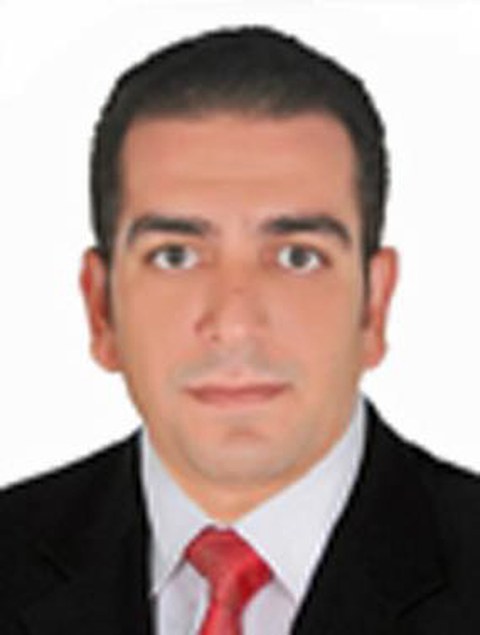
Mr Haytham Mohamed Salem Mohamed
Country of origin: Egypt
Workfield: Fed./nat. administration
Position while attending the course: Researcher at Department of Soil and Water Conservation, Desert Research Center (DRC) Cairo
Academic background: Agricultural Engineering (Ph.D.)
Responsibilities:
Junior researcher in training and research of soil and water conservation and management. Major activities include designing and implementing research projects as well as supervising field and laboratory experiments of the Desert Research Center.
Ms Manoria Nandjila Niingo

Ms Manoria Nandjila Niingo
Country of origin: Namibia
Workfield: Local administration
Position while attending the course: Education Officer at City of Windhoek
Academic background: Environmental Health Sciences (B.Sc.)
Responsibilities:
Community education on waste management systems, water utilisation and saving techniques. Development of the City Water Demand Strategy. Schedule water distribution to kindergartens. Implementation of several projects on recycling and waste minimization. Dissemination of health related information
Mr John Ituma Onwe
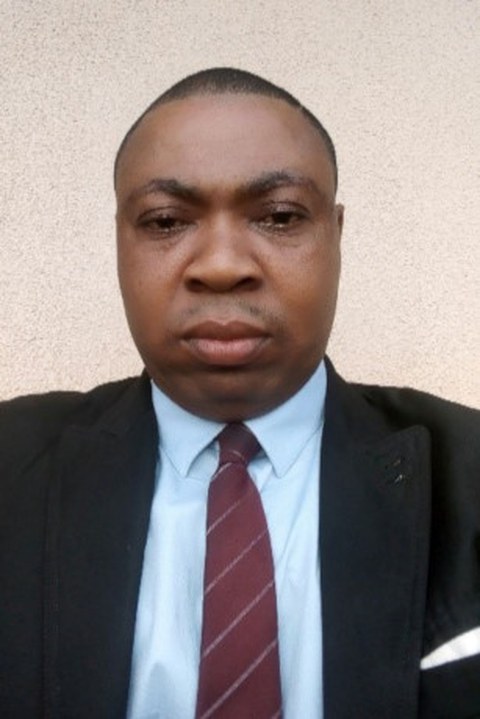
Mr John Ituma Onwe
Country of origin: Nigeria
Workfield: Environmental & Water Resources Management
Position while attending the course: Principal Civil Engineer, Hydrology at Federal Ministry of Environment, Abuja
Academic background: M.Sc. in Civil Engineering
Responsibilities:
Policies formulation on key national environmental and water resources management. Initiation and supervision of key flood, water harvesting and erosion control works. Compliance supervision and monitoring of industrial wastewater treatment facilities. Water Harvesting and climate change management
Profile:
I am currently a Principal Civil Engineer with the Federal Ministry of Environment, Abuja, Nigeria. I’m actively involved in Flood Forecasting, Management and Control for Nigeria. My specific tasks also include policies formulation for sustainable management of both Water Resources and the Environment, Initiation and supervision of priority projects in the afore-mentioned areas. Apart from that, I have actively participated in compliance monitoring of industrial effluent treatment facilities as well as in developing a strong National Air Quality Management Program (AQMP) for my Country-Nigeria. A team member in the on-going West Africa Coastal Areas Management program which focuses on increasing the resilience of coastal assets in Nigeria’s Littoral States to climate and other hazards, preservation/rehabilitation of natural coastal resources and ecosystems. In this context, the Fellowship Programme serves as a platform for me to deepen my knowledge of recent trends on Nature-Based Water Resource Management as well as to improve my skills for facilitating complex discussions under dynamic and diverse cultural environment.
Ms Carolina Alexandra Perret
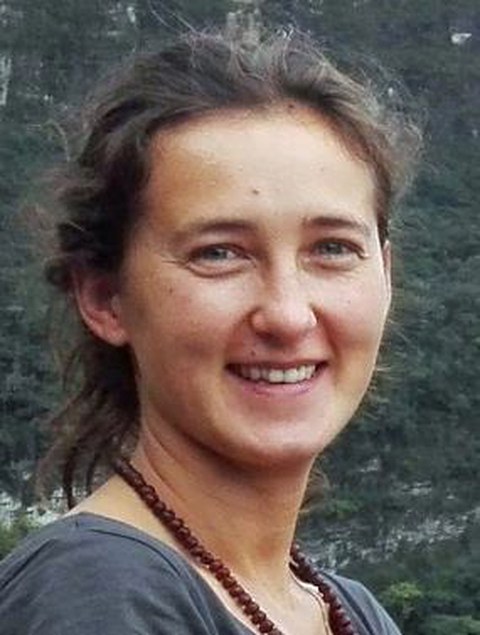
Ms Carolina Alexandra Perret
Country of origin: Peru
Workfield: Regional NGO
Position while attending the course: Specialist on Environmental Monitoring at Instituto Del Bien Común, Programa Propachitea Oxapampa
Academic background: Chemical Engineer (B.Sc.)
Responsibilities:
Coordinating the monitoring of water, weather, land cover and land use in a watershed located in the andean amazon rainforest.
Ms Ravololonariseta
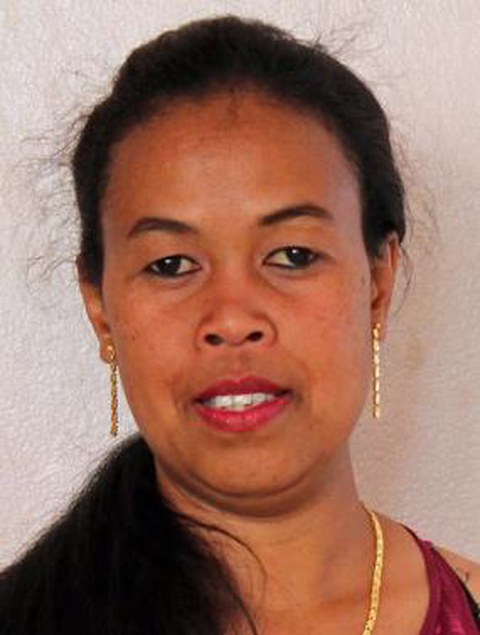
Ms Ravololonariseta
Country of origin: Madagascar
Workfield: Regional administration
Position while attending the course: Middle Environmental Officer at Ministry of Environment, Ecology and Forests Ampandrianomby, Antananarivo
Academic background: Environmental Assesment (M.Sc.)
Responsibilities:
Working at the Ministry of Environment, Ecology and Forests at the departement of Environmental Evaluation, in the Environmental Monitoring Division as a Middle Environmental Officer
Mr Behar Tërdevci

Mr Behar Tërdevci
Country of origin: Kosovo
Workfield: Reg. admin
Position while attending the course: Officer for Water Flow Administration at Ministry of Environment and Spatial Planning Kosovo,Regional Authority of River Basins, Pristinav
Academic background: Hydro-Engineering and Planning (B.Sc.)
Responsibilities:
Administrative and professional management of water use, utilisation of water flows and use of their hydro-potential. Participates in the process of reviewing technical-investment documentation of the parties' requirements regarding the use of water streams, water balance, etc.
Profile:
I work with the administrative and professional management of water use, the utilization of water flows and the use of their hydro-potential. I am participating in the process of reviewing technical-investment documentation of the parties’ requirements regarding the use of water streams and water balance.
The name itself Nature-Based Water Resource Management – Quantity, Quality, and Health, has pushed me to apply. Because Nature-Based Water can play an important role in improving the supply and quality of water and reducing the impact of natural disasters. Getting the best and best experiences from developing countries in managing water resources, quantity and quality. Also presentations from various and very professional professors, from whom we have received very important and valuable information for water resource management.
Two years ago I started to work in the Environment Ministry, respectively in the Regional Authority of river basins where I have the position as an officer for water flow Administration, dealing with the control of water permits for water exploitation and discharge.
I worked in two private companies as a major Engineer in in the construction of the water supply and sewerage network.
After working in the ministry, I work in an office as a consultant on road drainage projects. (Now we are working the 30-kilometer highway project, where I have completed the calculations for catchment, pipes and lagoons).
I also work as an external expert in reviewing complaints from companies in the public procurement review body.
Mr Phurpa Wangdi
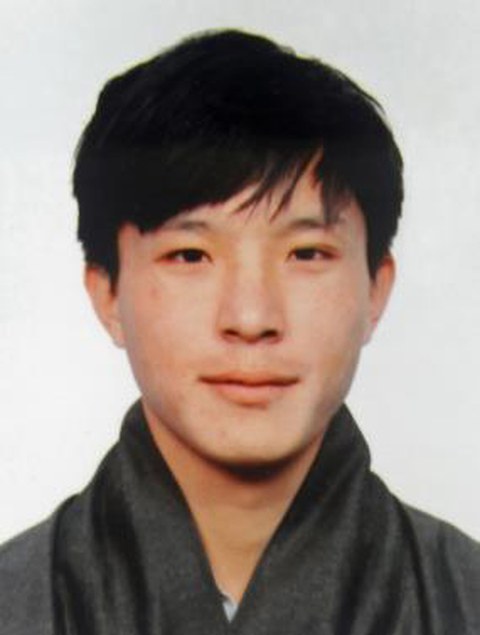
Mr Phurpa Wangdi
Country of origin: Bhutan
Workfield: Fed./nat. administration
Position while attending the course: Program Officer at Bhutan Standards Bureau (BSB) Thimphu
Academic background: Environment Management (M.Sc.)
Responsibilities:
Serves as standardizer besides the additional duty of Member Secretary to Sustainability and Environment Technical Committee. Coordinates meetings for standards development and facilitates at agencies for implementation
